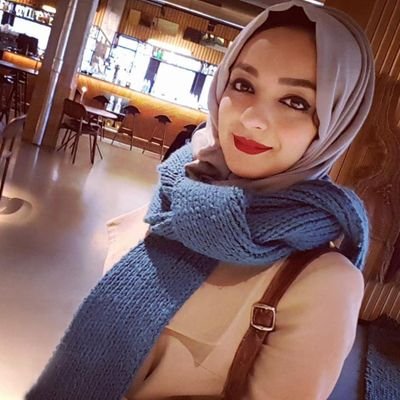The tiny oil-rich peninsular Arab country of Qatar has much to offer beyond its lofty skyscrapers, lavish hotels and luxurious shopping malls.
Overlooking the Qatari capital’s imposing skyline sits a charming historical souq, mere metres from the entrance to Doha’s much-adored, palm-tree lined waterfront promenade.
Souq Waqif literally translates to ‘Standing Market’. It is situated on the site of a historic trading hub which dates back more than a century, to a time when local Bedouin and merchants used to gather – standing – to sell livestock, fish, pearls, spices and other wares.
With the massive development boom that saw the construction of numerous shopping centres and high-rise structures in Doha in the 1990s, the old traditional market fell into disrepair before a major fire destroyed much of it in 2003.
![A general view of the Souq Waqif in Doha, a traditional market in traditional Qatari architectural style in the a host venue for the Qatar 2022 FIFA World Cup on 1 April 2019 in Doha, Qatar. [Mathew Ashton - AMA - AMA/Getty Images]](https://i0.wp.com/www.middleeastmonitor.com/wp-content/uploads/2021/08/GettyImages-1135619634.jpg?resize=920%2C613&ssl=1)
A general view of the Souq Waqif in Doha, a traditional market in traditional Qatari architectural style in the a host venue for the Qatar 2022 FIFA World Cup on 1 April 2019 in Doha, Qatar. [Mathew Ashton – AMA – AMA/Getty Images]
READ: Discover Pamukkale, Turkey
Souq Waqif has since become the social and cultural heart of the Gulf metropolis, and a shopping delight for locals and tourists alike. It is also certainly a great place to sharpen your haggling skills, considered part and parcel of the Arab souq experience.
An array of shops and antique stores line a network of interconnected cobbled alleys and passageways, adorned by exposed timber beams and lanterns.
![An old man helps Flamengo fan to wear the Arabic scarf at the Souq area ahead of the FIFA Club World Cup Final match between Flamengo and Liverpool FC on 21 December 2019 in Doha, Qatar. [Etsuo Hara/Getty Images]](https://i0.wp.com/www.middleeastmonitor.com/wp-content/uploads/2021/08/GettyImages-1195191034.jpg?resize=920%2C613&ssl=1)
An old man helps Flamengo fan to wear the Arabic scarf at the Souq area ahead of the FIFA Club World Cup Final match between Flamengo and Liverpool FC on 21 December 2019 in Doha, Qatar. [Etsuo Hara/Getty Images]
Aromatic spices and traditional foods are also in plentiful supply around the market, presenting an enticing feast for the senses rich in both colour and flavour.
One section of the souq is dedicated to falconry, a sport that has deep roots in Qatari culture. Arabian horses are not an uncommon sight at the souq either, with stables housing them not far from the falcon market.
It is in the evenings that this quintessentially Arab-style traditional souq truly comes alive. A host of restaurants, cafes and shisha lounges serving cuisines from all over the world are often buzzing with visitors and families enjoying an evening out.
The maintenance and upkeep of the market is impressive. Its design and atmosphere seamlessly combines the present and the past, with public art installations bringing a contemporary touch to the traditional setting.
READ: Discover Cleopatra’s Needle, England
‘Le Pouce’, a bronze sculpture in the shape of a giant thumb by acclaimed French artist César Baldaccini, stands in an open-air courtyard in the souq which also serves as an open space for various festivals that are organised on site throughout the year.
![People wearing protective gear walk by near a sculpture entitled "Le Pouce" by French artist Cesar Baldaccini, at Qatar's touristic Souq Waqif bazar in the capital Doha, on 17 May 2020, as the country begins enforcing the world's toughest penalties for failing to wear masks in public while it battles one of the world's highest coronavirus infection rates. [KARIM JAAFAR/AFP via Getty Images]](https://i0.wp.com/www.middleeastmonitor.com/wp-content/uploads/2021/08/GettyImages-1213390933.jpg?resize=920%2C613&ssl=1)
People wearing protective gear walk by near a sculpture entitled “Le Pouce” by French artist Cesar Baldaccini, at Qatar’s touristic Souq Waqif bazar in the capital Doha, on 17 May 2020, as the country begins enforcing the world’s toughest penalties for failing to wear masks in public while it battles one of the world’s highest coronavirus infection rates. [KARIM JAAFAR/AFP via Getty Images]
Al-Fanar Islamic Cultural Centre, with its remarkable spiral minaret, can be seen looming over the distance. Doha’s state-of-the-art Museum of Islamic Art is also a short walk away, as is the Corniche and its renowned pearl monument that pays homage to Qatar’s primary pre-oil industry of pearling.


![17th IAAF World Athletics Championships Doha 2019 - Previews General view of the Souq Waqif, marketplace in Doha, prior to the 17th IAAF World Athletics Championships Doha 2019 on 25 September 2019 in Doha, Qatar. [Maja Hitij/Getty Images]](https://i0.wp.com/www.middleeastmonitor.com/wp-content/uploads/2021/08/GettyImages-1178205048.jpg?w=631&h=421&ssl=1)
![Views Of Qatar View of a shop to buy falcons with a man in traditional clothes called dishdasha at Souq Waqif on 24 December 2011 in Doha, Qatar. [Nadine Rupp/Getty Images]](https://i0.wp.com/www.middleeastmonitor.com/wp-content/uploads/2021/08/GettyImages-136471225.jpg?w=281&h=421&ssl=1)
![17th IAAF World Athletics Championships Doha 2019 - Day Eight People walk through the Souq Waqif during day eight of 17th IAAF World Athletics Championships Doha 2019 at Khalifa International Stadium on 4 October 2019 in Doha, Qatar. [Michael Heiman/Getty Images]](https://i0.wp.com/www.middleeastmonitor.com/wp-content/uploads/2021/08/GettyImages-1179009215.jpg?w=916&h=626&ssl=1)
![15th Asian Games Doha 2006 - Previews The Pearl monument on The Corniche is shown prior to the start of the 15th Asian Games Doha 2006 November 27, 2006 in Doha, Qatar. The games start on December 1, 2006. [Richard Heathcote/Getty Images for DAGOC]](https://i0.wp.com/www.middleeastmonitor.com/wp-content/uploads/2021/08/GettyImages-72651848.jpg?w=456&h=304&ssl=1)
![FIFA World Cup 2022 Previews - Doha, Qatar Views of the skyscraper skyline in Doha City, on the Corniche in Doha Bay. [Matthew Ashton - AMA via Getty Images]](https://i0.wp.com/www.middleeastmonitor.com/wp-content/uploads/2021/08/GettyImages-508975358.jpg?w=456&h=304&ssl=1)






